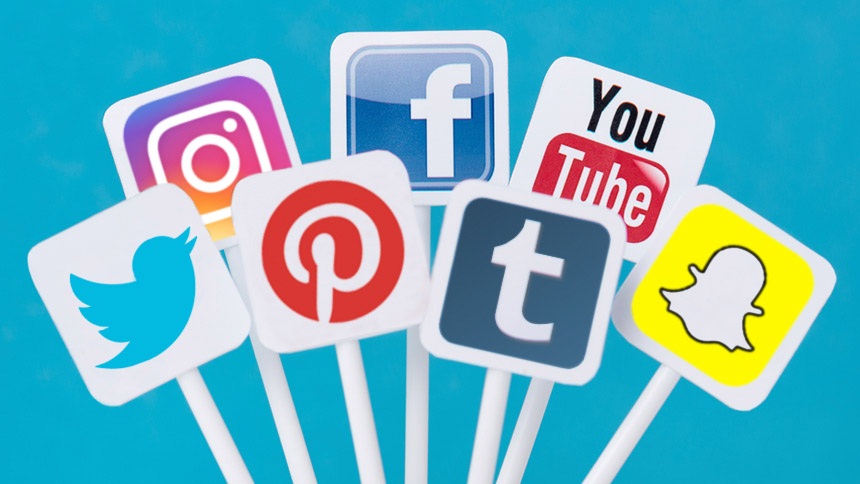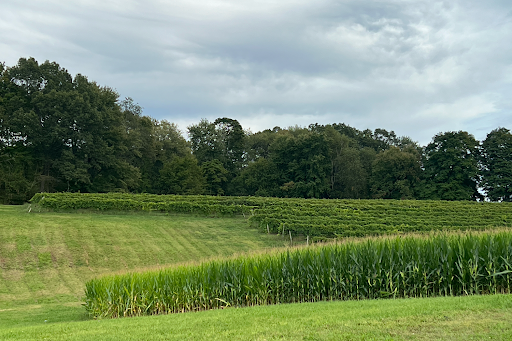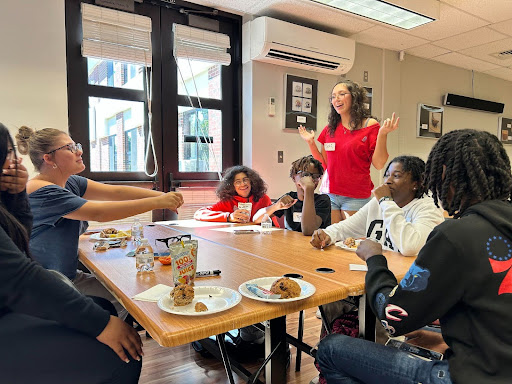Social Media’s Effect on Students
May 23, 2017
As I thought about what I wanted to write this article about, my phone buzzed and a notification from on of my favorite social media sites popped up. Being the productive, on task student I am, I kept thinking. But I couldn’t shake the idea that there was something I was missing out on, some piece of information. So I reached for my phone, and checked the notification. It wasn’t anything important, but still I felt better knowing I was now informed. Upon further thinking, I was struck with this thought. Why do I feel this urge and connection to social media. I know I am not alone in this feeling, and there must be a common thread shared between me and everyone else who feels like this. And thus this article was born.
In this age of technology, social media has emerged as a frontrunner in the race to acquire information. Teenagers are one of the main demographics behind many of these popular social media sites. They have a thirst for information unlike any other age group. Much of their social world revolves around these platforms, and the platforms’ ability to receive information quickly. So as we examine what makes social media sites popular, brevity, relevance, the ability to share knowledge, and accessibility to new knowledge all stand out as major components.
As technology has brought a wealth of information to our fingertips, this much knowledge can often be burdensome. A teen walking through class, hears a peer discussing piece of breaking news. The curious student wishes to learn more about the brief snippet he heard from his classmate. Not having enough time between classes to read a full news article, the student takes to his greatest asset, Twitter. He is able to utilize hashtags to quickly navigate the millions of twitter posts, and get a more informed picture on the situation. Looking at a few tweets, each less than 140 characters, he is able to gather the same information as reading an article but in a shorter amount of time. In an article written by Bruce Gibson, and published on Digital Organics, he states that, “Many would argue that this seemingly strict limitation is one of Twitter’s greatest strengths…Twitter users relish in the brevity. Writing pithy yet informative tweets that convey the full value of your meaning is a skill.” In a world of information overload, this limitation forces users to make every word count. This brevity that twitter users cherish, is one of the biggest reasons why Twitter is social media platform it is today. Not only does the brevity of twitter post draw in users, but it allows for a quick intake of very user relevant information.
The creation of content is a very big part of what makes social media popular today. Teens feel that being able to share important information is just as important as getting it. Social media gives many opportunities to customize created content. Young adults are able to personalize content in a variety of different ways. They are able to post pictures and change their user names, even update relationship statuses. Freelance writer Kristi Hines published an article on A blog called KissMetrics. The article focuses on successful social media pages. She says social media is about ¨trying to get more exposure online, connect with your fans or customers, or working to purify your online reputation¨ All of these things revolve around being active and creating content. In order to connect with fans you have to create different types of posts then if you were trying to get more exposure. Successful social media platforms give you the opportunity to create and personalize content in order to convey the message you are trying to get across. The creation of this personalized content is often a result of exposure to new thing and finding new likes and dislikes.
Social Media is becoming a huge part of our world. Teens and young adults are learning each day how to exploit this new technology. After looking at why popular social media sites are so successful, I realize why as a teen, I feel the need to check my phone and stay active on social media. Although exploring has helped me understand this attachment it has prompted me to take time away from my phone, and learn and intake this knowledge through alternative sources. I think that this is a valuable lesson to any teen or young adult as we further progress into this ever changing world of technology.












